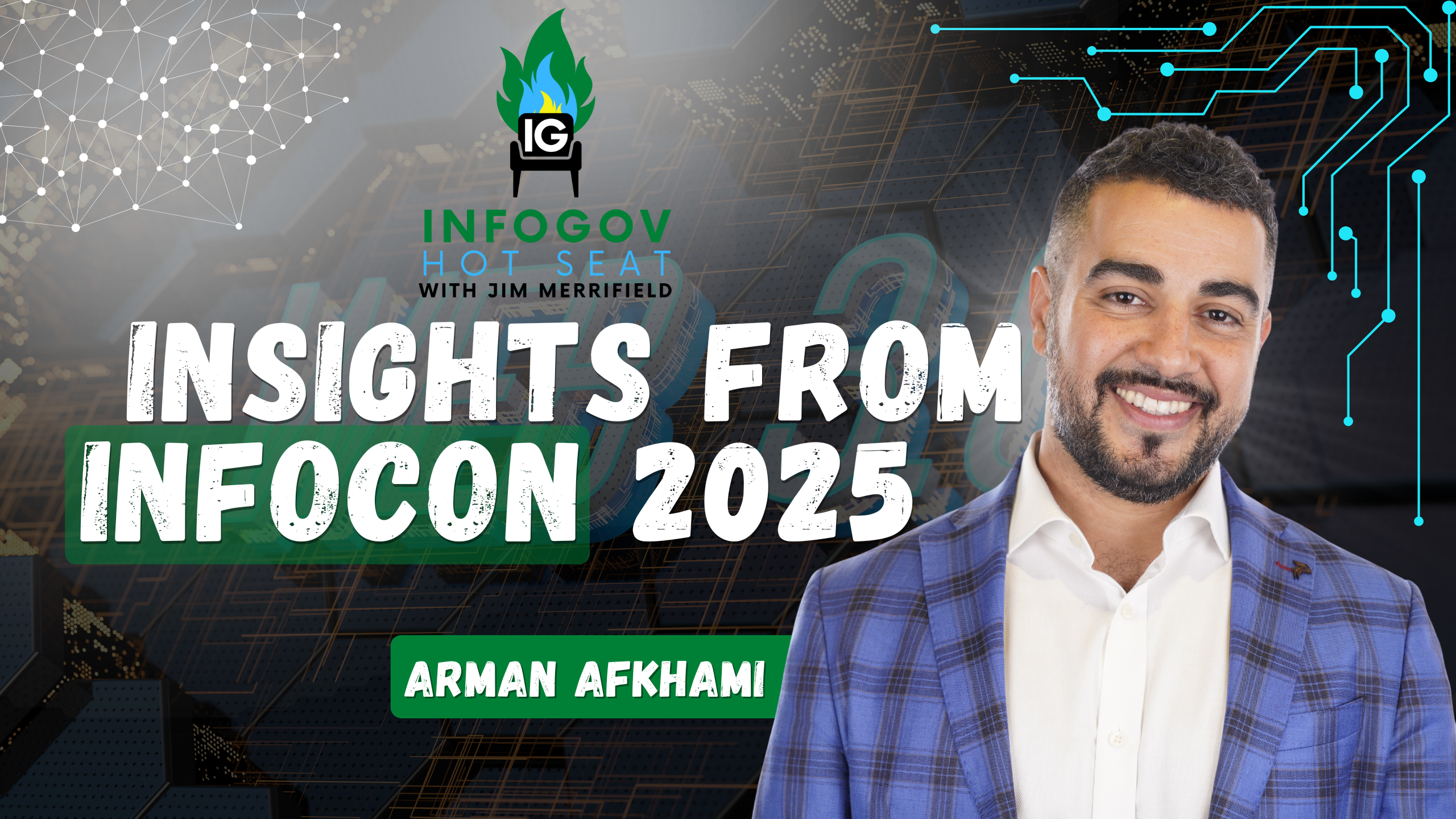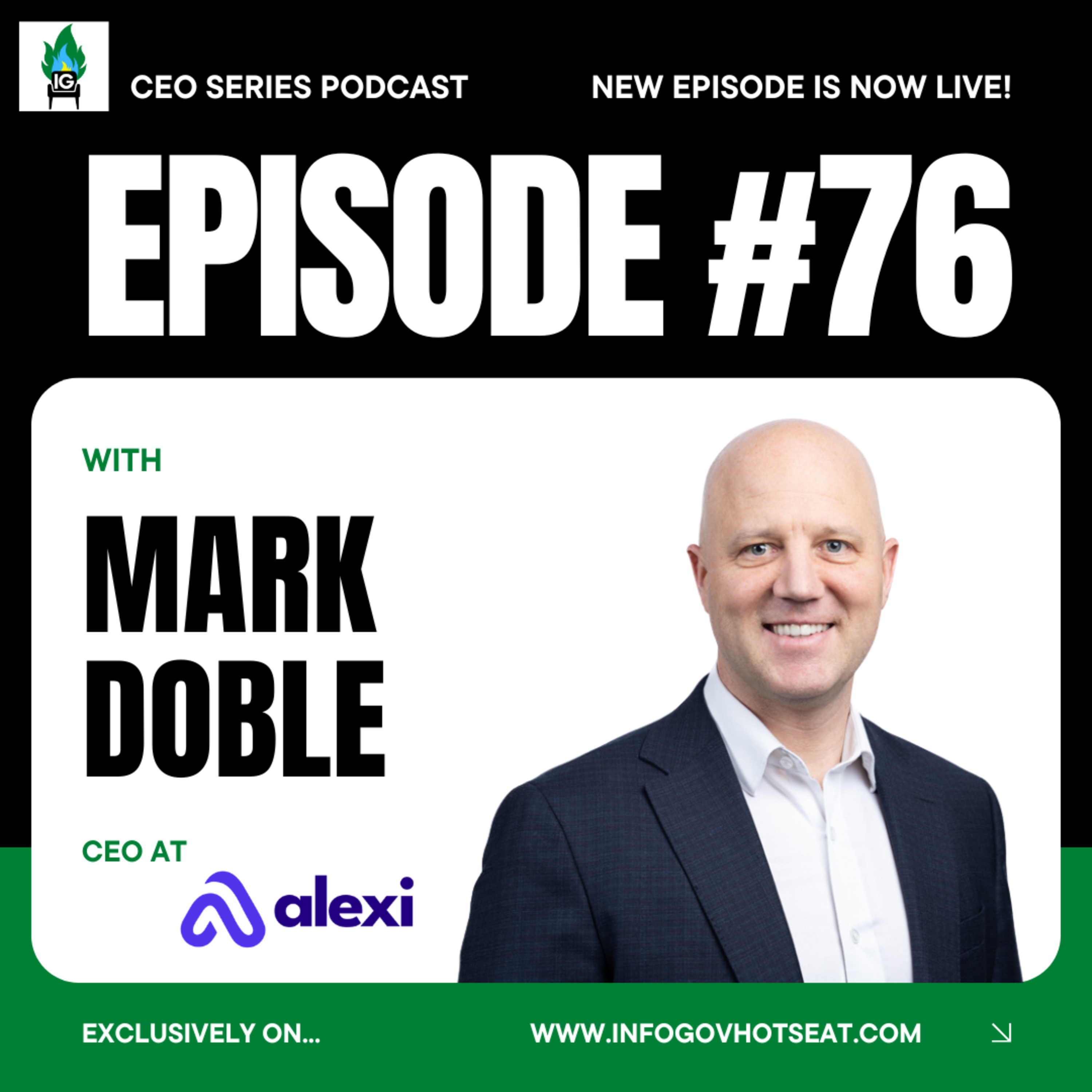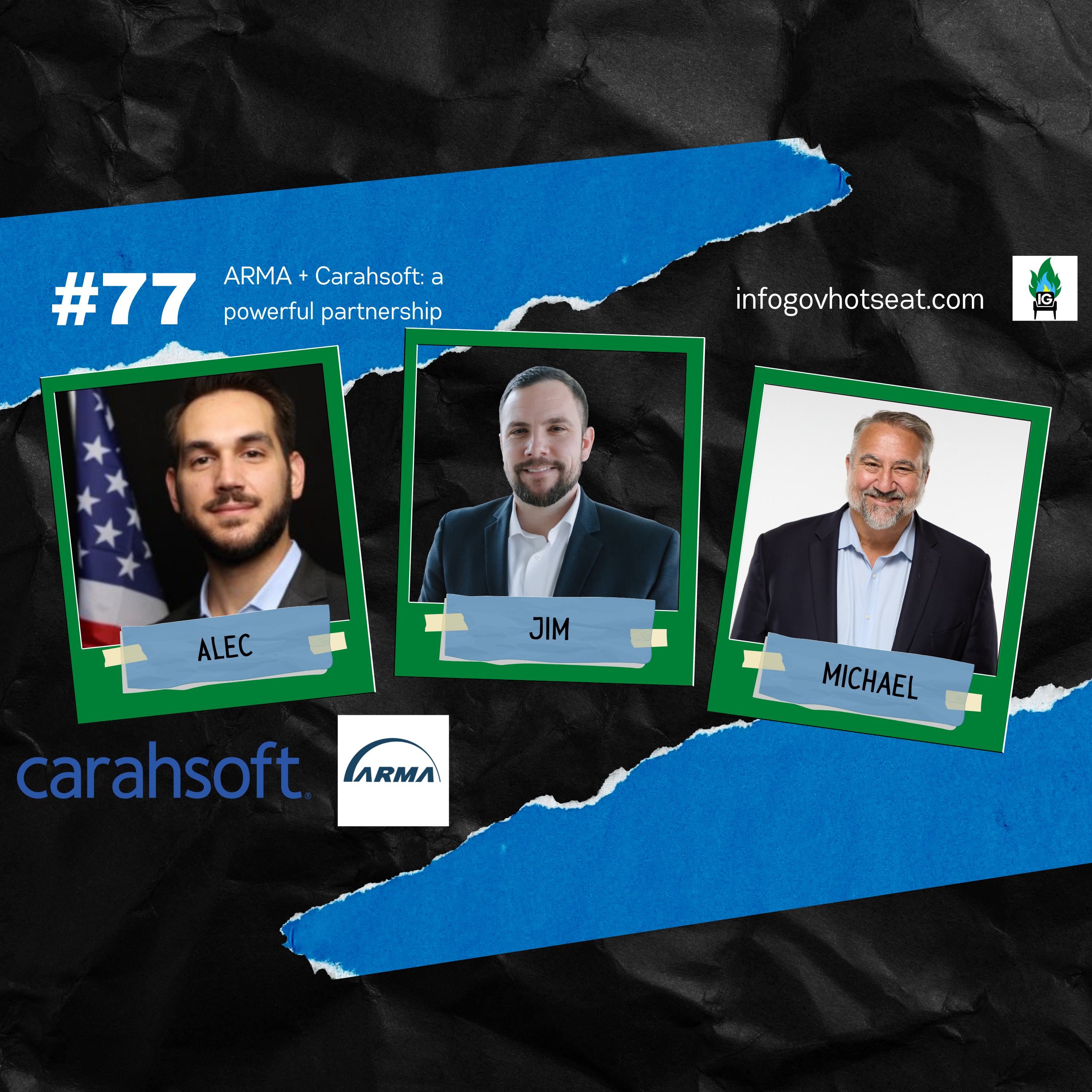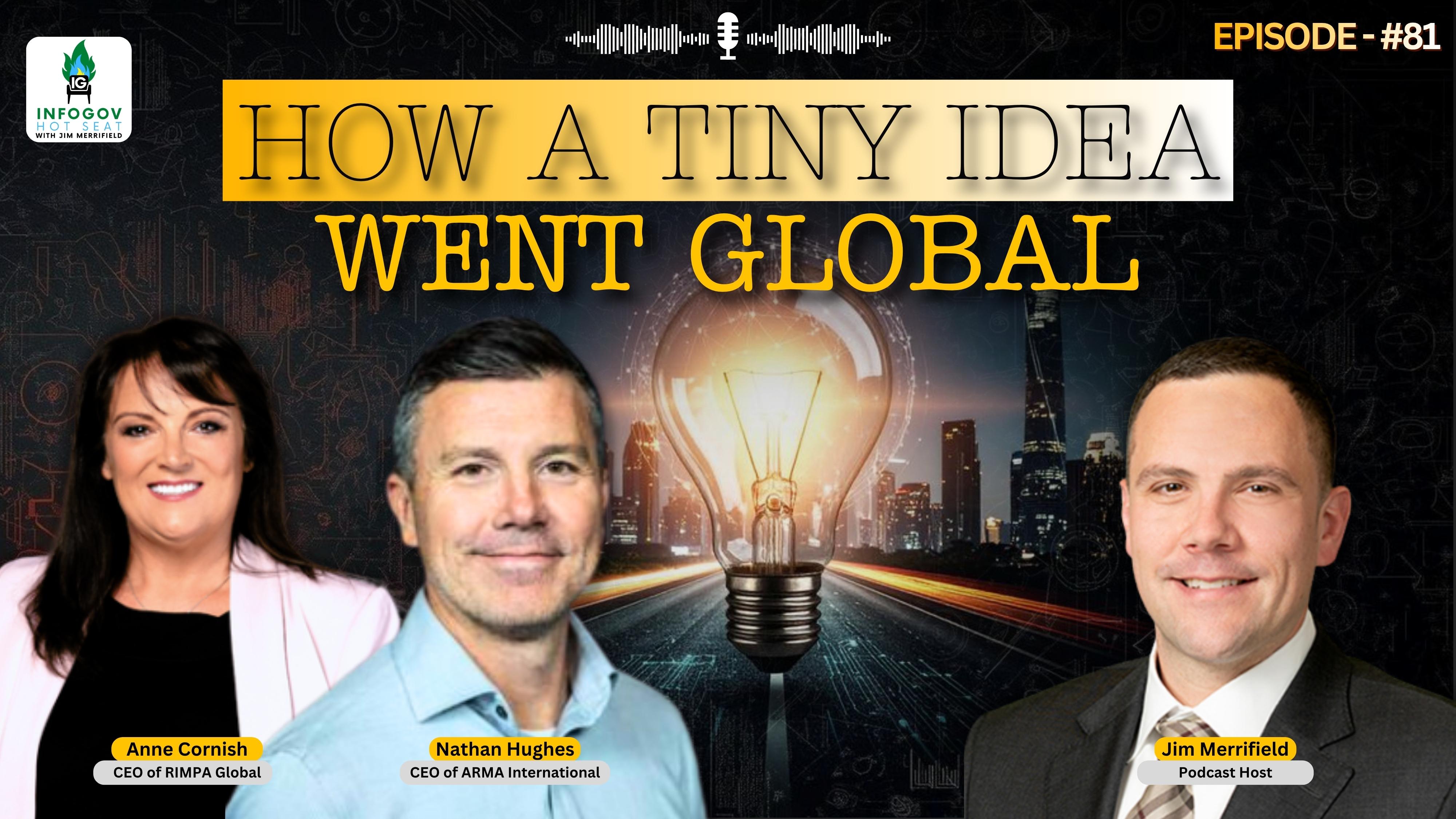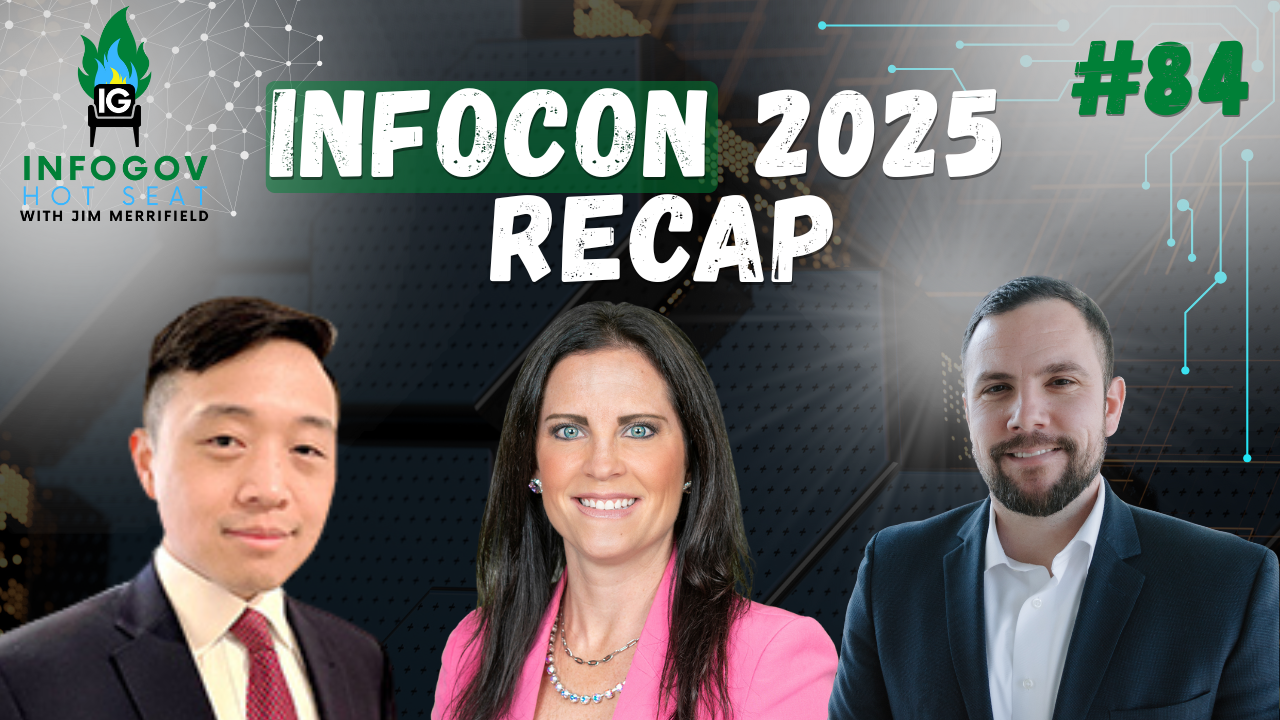IGHS61 - Coheso AI: The Future of In-House Legal Management with CEO, Ned Gannon
In this conversation, Jim Merrifield interviews Ned Gannon, co-founder and CEO of Coheso, a legal tech company focused on leveraging AI to improve efficiency and compliance in in-house legal departments. They discuss the inspiration behind Coheso, the challenges and opportunities presented by AI in information governance, and the ethical considerations that come with implementing AI solutions. Ned shares insights on how Coheso integrates with existing systems and the evolution of AI in the legal industry, highlighting the importance of providing accurate and timely information while maintaining ethical standards.
Jim Merrifield (00:00.675)
Well, hello and welcome to the InfoGov Hot Seat! I'm your host Jim Merrifield and with me today is Ned Gannon at Coheso Welcome Ned!
Ned Gannon (00:08.282)
Hey, thanks so much for having me, Jim. It's great to be here.
Jim Merrifield (00:11.299)
Yeah, it's great to see you again on the Hot Seat I know we've, it's been a while since we've connected. I know we worked in the same firm many, many years ago. So it's great to connect with you.
Ned Gannon (00:23.226)
Yeah, yeah, that's crazy how time flies.
Jim Merrifield (00:26.229)
I know, absolutely, we're all grown up now. So let's kick this off. Can you introduce yourself briefly? Tell us about your current role and share one fun fact about yourself.
Ned Gannon (00:28.484)
Yeah.
Ned Gannon (00:38.5)
Sure. So I'm Ned Gannon. I'm co-founder and CEO of Coheso So to share a little bit on my background, I had started my career as a corporate attorney, primarily doing mergers and acquisitions, often on behalf of private equity funds. And then in 2012, I actually started another AI focused legal tech company called eBrevia really at that time, very heavily focused on due diligence and M&A leveraging machine learning and natural language processing technology.
for large-scale contract review. was CEO of that company from inception through our acquisition by a public company called Donnelly Financial Solutions or DFIN in December of 2018 and then ran the business for a few years post-acquisition. I left in April of 2023 to co-found Coheso with three AI-focused engineers who had all built other successful legal tech products.
And at a high level, Coheso is a legal front door and work management platform for in-house legal and compliance teams.
In terms of a fun fact, so I know it's starting, we're at the end of November now, starting to get a little colder out there. I'm a big skiing fan. I love to ski. I actually grew up near a small place, a small ski area where I worked in high school, operating lifts and giving instructions to kids. So I got to ski for free. And ever since then, I've been a passionate skier.
Jim Merrifield (02:06.831)
That's great. Great background. Thanks for introducing the company. And where's your favorite place to ski?
Ned Gannon (02:13.851)
So I'm in Connecticut, so I ski both East Coast and West Coast, but most of the skiing is on the East Coast. And that's really where I grew up, so we head up to Vermont quite a bit, and I'm partial to Stratton. So we're actually planning a trip up there as we speak.
Jim Merrifield (02:29.999)
That's great. Yes, Stratton has a a nice golf course as well. So but you can't golf too much in the in the snow.
Ned Gannon (02:37.462)
Yeah, no, I'm not a golfer, but I do love the skiing there.
Jim Merrifield (02:42.745)
Yeah, awesome. All right, great. So let's learn a little more about your company, Coheso. What inspired you to start your AI company and how has the vision for the business evolved over time?
Ned Gannon (02:57.422)
Yeah, so it's interesting. So when I was practicing law, I'd often feel a lot of pressure to generate work product more quickly while getting distracted by very routine and repetitive requests. And then when I moved over to the business side, running a P &L, I would sometimes see your requests go into legal and just based on the volume of work in-house legal departments were going through, they'd sometimes get bogged down and that could delay time to revenue.
It could open up opportunities for competitors to come into the mix to maybe lose revenue. So it was really kind of these twin pain points, both on the legal side and business side that made me say, Hey, maybe there's a way to leverage AI and develop a solution to increase that synergy between business and legal and empower in-house legal and compliance teams to create more value for the business users that they're working with. So at a really high level, just to kind of give you a quick overview of the platform.
Folks on the business side can ask questions of the legal or compliance team. We look to meet business users where they're at. So if they're typically engaging with the legal team through Outlook or Slack, where you have integrations there. If those questions, or they can ask questions through the Coheso interface as well. If those questions can be answered based on the company's policies, contracts, or other documentation, the system will generate a response together with a link to evidence in the source document.
highlighting the language that was used to derive the answer. And then for more complex requests, those are delegated, prioritized, and tracked, leveraging AI within a work management portal. And finally, there's a whole host of analytics and dashboards on top of the various modules.
Jim Merrifield (04:38.447)
That's a great overview. I can't wait to schedule my demo.
Ned Gannon (04:43.266)
Yeah, well we're excited to show you. Yeah, for sure.
Jim Merrifield (04:46.681)
Yeah, who doesn't want to be more efficient these days?
Ned Gannon (04:49.626)
Exactly, exactly. And especially in an in-house legal department with such a cost center, efficiency is really key. the other thing I would say, so efficiency is a big part of this play, but it's also the opportunity to, as I said and alluded to earlier, to increase revenue, get revenue into the business more quickly, and then also to decrease risk. So one of the other things I've experienced working on the business side is
Sometimes I'll have a question or I would have had a question that I knew there was a policy out there that would provide an answer, provide some guidance, but I often didn't have time to find the policy, much less read through it to kind of tease out an answer. And if you multiply that across an organization, it actually could increase risk quite a bit. So Coheso is a way to get very quick, accurate answers on policies in addition to contracts and other types of process related documentation.
Jim Merrifield (05:43.799)
Good, very good. So with all these innovations, what do you see as the biggest challenge and opportunities for AI and information governance in general in the tech industry over the next five years? Because every conference that I've attended or a conversation I've
People are worried about their data, right? How clean is it and all that jazz? What are your thoughts on that?
Ned Gannon (06:11.95)
Yeah, so I think that's exactly right. Data and the privacy around data is a key consideration and a challenge for sure, as is bias, explainability, accountability, all challenges. I think also for companies in the space, the other challenge is regulations are both complex and continuing to evolve as they relate to AI. So lots of things to think through with respect to AI from an information governance perspective.
In terms of opportunities, I do believe AI is really empowering opportunities related to information governance that we didn't see even a short time ago. So as I mentioned with respect to the Coheso platform, if you have an information governance question as someone on the business side in a large enterprise, in the past, it might've been challenging to get an answer to that. You'd either have to connect with the right person or find the right policy. With the Coheso platform, you can submit that question.
If that question can be addressed by a policy, again, you'll get back a very accurate and timely answer to help ensure compliance for the organization. And then I think beyond that, just leveraging AI within the enterprise generically, as far as information governance goes, you can more easily see what documents or what data are stored where within the enterprise, which is helpful too.
Jim Merrifield (07:33.241)
Yeah, it makes a lot of sense. So it sounds, I don't want to say too good to be true, but it seems like you must have to have your house in order, all your policies together. I'm sure the first, or one of the things that most of your customers are worried about is how do you keep my data secure against everybody else's data? So it talks about
You know, so how do you make sure that your solutions when developing them, how are they ethically responsible while maintaining a strong IG?
Ned Gannon (08:09.07)
Yeah, and one of the first things I'll say just to your earlier point is that we often say to clients because that idea of good housekeeping comes up and some people see the solution and they say, wow, this is great. This would be super helpful for us, but it's going to take us some time to get our house in order. And I would say, you know, don't want to let the perfect be the enemy of the good. So we do have a lot of clients that will start with a subset of data or documents that they do have organized. And these are documents that people have.
what a lot of frequently asked questions about. They can get those in the system, start providing value right away, and then take the time to get into some of the, or maybe less frequently queried documents. So that's just one initial thought on that piece. But yeah, I would say in terms of how we address some of these challenges, ethical challenges. So certainly with respect to privacy and data security, we look to...
implement robust information governance within Coheso itself. So we're SOC 2 compliant. We do regular penetration tests or GDPR, adhere to GDPR as well. I would say, you know, if you think about some of the other ethical challenges, so bias, for example, all of Coheso's answers are based off of the company's policies, contracts, and other documentation. So they're tied very tightly back to that.
As a result, the Coheso platform isn't introducing any bias of its own. And it's similarly with explainability. So for all of the responses generated, you're provided with a link to evidence. You can see the language highlighted in the source document. You know where the answer is coming from. And then maybe finally, I'll just mention too, if you think about accountability, we also believe it's important to have a human in the loop.
as needed. for all of the answers that the system generates, clients have the option whether they want those to be validated by someone on the legal or compliance team before they go back to the business side. And then as I mentioned, for the more complex requests, those are prioritized, delegated, and tracked. And those are requests that do have a human in the loop because they kind of require some level of human involvement out of the gate.
Jim Merrifield (10:23.735)
Yeah, it makes a lot of sense because there's a lot of misconceptions out there that you know, least in the legal world, right? I'm sure you remember the term document management system and I think you know some some users in legal and organizations just want to you know download a her Install a GenAI tool point at the whole DMS and problem solved So you'd say that's probably not a great idea, right?
Ned Gannon (10:46.532)
Yeah.
Yeah, yeah, no, there's a lot to think through, a lot to be careful of as you're considering implementing these types of systems. I will say in addition to having the ability to upload documents to the Coheso system and have those serving as a repository, we can also look to essentially integrate with the repositories you're currently using as well. And that's particularly helpful for clients where they do have different types of documents stored in different types of repositories. So...
We're working with a client now that's using a CLM for their contracts, and then they also have, I think, iManage for some other types of documents. So to serve as that front door, you want to be able to tap into everything.
Jim Merrifield (11:31.801)
So you can isolate the search just to your documents. You can not have the GenAI touch the web.
Ned Gannon (11:40.196)
That's exactly right. So the way the system's currently designed is it exclusively relates to the organization's documents. So often you hear about with AI the potential for hallucination with a platform like Coheso that's significantly reduced because all the answers are coming directly from the company's documents. Now we have had some clients that have said, hey, this is great. It's providing us with a tremendous amount of value and answers.
We'd like to be able to point it also at a trusted outside source. So that's something we have in our roadmap as well. Again, we'll defer to the client on what they trust. We never want to be in a position where we're just pulling in information around the internet and potentially providing misleading answers.
Jim Merrifield (12:26.037)
a lot of sense. It seems like you put a lot of
Ned Gannon (12:34.82)
And a lot of great, client feedback too, which has been super helpful and allowed us to continue to iterate.
Jim Merrifield (12:42.223)
So Ned, I know we talked about a lot here. You definitely intrigued me and I'm sure you intrigued the audience here. Is there anything else you'd like to share with the audience before we let you go?
Ned Gannon (12:52.25)
I would just say, I mean, I've been in this space of bringing AI to the legal industry since 2011. It's been fascinating to see how the industry's evolved over time. know in 2011 and 2012, we faced a lot of skepticism from attorneys around leveraging AI, but it's certainly a different world today. I've never been more excited. If folks are interested, particularly in-house or compliance folks,
and seeing a platform to help them streamline their operations and create more value for the business units they're working with, love to have a conversation.
Jim Merrifield (13:29.377)
For sure and Ned thanks so much for spending some time today to introduce me to or to the audience not only myself but the audience to Coheso and also getting to connect with you virtually maybe at some point we'll I know we miss each other at ILTA but we'll definitely connect in person we're in the same state so we should
Ned Gannon (13:47.192)
I know, Jim, you're not too far and Connecticut is not a big state, so there's no excuses.
Jim Merrifield (13:53.303)
No, for sure. So thank you so much. And of course here, if you'd like to be a guest on the InfoGov Hot Seat, like Ned here, all you need to do is submit your information through our website, infogovhotseat.com. And thank you so much and enjoy the rest of your day.
Ned Gannon (14:08.154)
Thanks so much, Jim. This has been great.
Jim Merrifield (14:10.511)
Absolutely.

CEO
Ned Gannon is a co-founder and CEO of Coheso, a legal front door and work management platform for in-house legal and compliance teams. Previously, Ned was co-founder and CEO of the AI-based contract analytics pioneer eBrevia acquired by Donnelley Financial Solutions (NYSE: DFIN) in 2018. Following eBrevia's acquisition by DFIN, Ned served as President of DFIN's eBrevia subsidiary with overall management and P&L responsibility increasing revenue 5X. Ned previously practiced corporate law at Paul Hastings. Ned holds a law degree from Harvard Law School and a Master in Public Administration from Harvard’s Kennedy School of Government.









